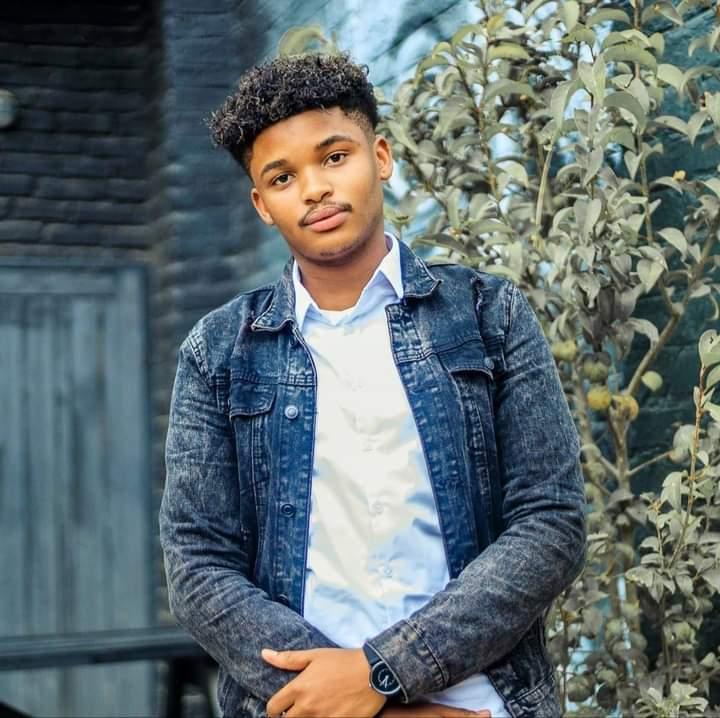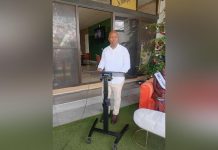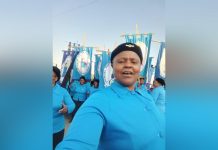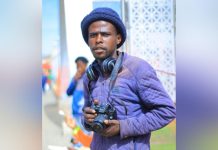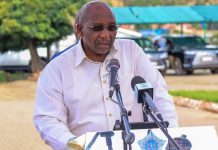Africa-Press – Lesotho. “You are not a girl, man up like a boy” these words are sometimes said out of desperation and confusion by parents because in their view their son is a boy but the son doesn’t consider himself a boy.
Such differences in views can make the life of a child very confusing. Paballo Leteketa, fondly known as ‘Tasha’, is aged 25 and he sings praises about his mother who supported him to express his feminine side.
He shares and engages on his sexuality during the month of May, as the world celebrates Mother’s Day (2nd Sunday of May) and The International Day Against Homophobia, Transphobia and Biphobia (IDAHOT) on May 17.
In a binary world there are only two sexes, female or male, and only two genders, masculine and feminine. But the LGBTIQ views sexuality and gender identity differently, and as Tasha explains “I am at the end of the LGBTIQ spectrum.
I don’t belong in any of these definitions. Queer can simply be defined as the stage where you are questioning who you are, exploring and learning more about yourself and your sexuality.
” Growing up, he remembers experiencing stigma, where people would call him ‘ausi’ Leteketa.
He never understood why they would refer to him as ‘ausi’ while he was a boy. He preferred to be called ‘abuti’ Leteketa as he knew that he was not a woman.
His mother who fondly calls him Matiki, would tell how to respond to those who called him ‘ausi’; and though she was supportive she would often be overwhelmed by his father as head of the family.
“I have always known that I was different; based on how I conducted myself and how I saw other people; the way I felt inside didn’t resonate with how men feel,” he says.
His father was not very supportive to his character, and growing up in a Catholic family his mother was very involved in church affairs – a church not tolerant to gay people and their rights.
His father insisted that he should serve as an altar boy in order for him to be manly. After completing his primary school, he was enrolled at a Catholic boys’ only school, Sacred Heart High School in Leribe.
This was as another way his parents were trying to help him to man up. In his view being in boys only school did more harm than good. “Those were the most uncomfortable four years of my life.
My recommendation is for anyone who is not sure about their sexuality, don’t expose them to females or male only environment until they have found themselves.
” He says he was often asked how he managed growing up with three sisters as the only boy, and recalls that most times the sisters didn’t mind how he behaved.
“But at times they would scold me mainly under the influence of our father who always insisted I should be a boy,” he continues, adding that, ironically, there more he was ridiculed the more he was forced in expressing his feminine side.
He decided to be very colourful and gayish “until they started realising that this was who I am. ” He laughs and says “I loved feminine clothes. ” It is not surprising, therefore, that Tasha has tried his luck as a model.
“I used to model male clothes for Birds of Paradise Agency and for wedding gowns for a bridal shop called Wedding World in around 2014 even though I am no longer active as a model.
I am also the first Miss Gay in Lesotho, crowned in 2014; this was my first participation in the IDAHOT when it was for the first time commemorated in Lesotho.
I considered it a fun activity but when I got there I realised that there were many broken souls there who tried to hide behind alcohol and drugs. I vowed I would never take part again,” Tasha recalls.
In Lesotho the LGBTIQ community is not getting enough psychosocial support because of scarcity of qualified clinical psychologists, suggests Tasha. “We have lots of counsellors who have pastoral care background and mainly involved in offering HIV counselling services.
The LGBTIQ community is faced with multiple issues such as being kicked out of their homes, accepting who they are and loving themselves. They need a comprehensive package of services that address their needs holistically, not just HIV.
” His message to people yet out of the closet, to go public about their sexuality Tasha says “it’s not easy coming out. Don’t do it out of pressure because some have committed suicide. Love yourself better, cherish yourself, and it starts with you. ”
This is a powerful message and we can also tear a leaf off Tasha’s book on self-love and self-respect regardless of your sexual orientation and gender identity.
Tasha is a God-fearing person, who is very spiritual. He grew up active in church, a trait he has carried even into his adulthood. His favourite verse is Psalm 27: 10 “Though my father and mother may forsake me, God will never leave me or forsake me.
” He says this verse has prepared him for many challenges humankind faces in life. His view is that most of the churches are not welcoming to gay people.
He used to be a member of s praying group, but recounts sadly that the group stopped inviting him when they learnt that he was gay. He feels he is ready to participate actively in church again. He boldly says “noone can discredit the grace that God has given me.
” He quotes Hebrews 4:16 “Let us, therefore, come boldly to the throne of grace, that we may obtain mercy and find grace to help in time of need” to confirm that he also qualifies to worship God with other Christians.
His message to parents is “be protective of your children, love them whether they are girls or boys. Children need acknowledgement in all their battles especially during their formative years.
In Lesotho, we ignore toxic masculinity. Parents turn a blind eye on issues of boys, they listen more to girls. Boys are still human, men are vulnerable and it is even worse for Queer men.
”
Tasha is currently working as a lay counsellor and peer navigator at the Lesotho Planned Parenthood Association (LPPA) on the HIV project ‘Mobilising men who have Sex with Men’ (MSM) to access HIV counselling and testing services either at community level or at the health facilities.
Asked of his career aspirations, Tasha says he wants to be a psychologist, indicating “I think it is befitting given his personal experiences and passion LGBTIQ issues and is interested in supporting other minority groups.
” His mother, ‘Manthabiseng Leteketa, has been a strong pillar of strength from childhood. She said she realized a little bit late “that Matiki was not behaving like other boys” and as a family were puzzled by this behavior. She adds that they had to stand by him, especially when he was being stigmatized and discriminated at community level.
When Matiki was a young adult, she continues, she received a call from the LPPA where one staff member talked to her and orientated her on sexuality that boy children can take after their mothers in looks and mannerism and vice versa for girls.
“We have seen cases where some women have beard, and some males have mature breasts. This orientation was an eye opener. At home I started educating my late husband and my daughters to be more accepting.
As a society we have to be more accommodating and remember that we are all created by God with our different and unique features. We should not judge or discriminate.
Parents should validate their children from an early age so that they can grow up loving themselves. A child without self-confidence they can’t succeeded in anything. They need to be relaxed as individuals, express themselves without fear. ” According to Tasha:
Lesbian
– A woman who is emotionally or sexually attracted to other women
Gay
– Sexually or emotionally attracted to people of their own gender, usually used to describe males.
Bisexual
– A person who is emotionally and sexually attracted to more than one sex or gender
Transgender
– A person whose gender identity differs from the sex they were assigned at birth
Intersex
– A situation where a person is born with reproductive or sexual anatomy that doesn’t fit the boxes of female or male
Queer:
sexual and gender identities other than straight and cisgender.
Palesa Mat
šasa is the founder of ‘Find Your Voice Initiative’ a social set-up where people come together to discuss, reflect and learn from each other. She is a public speaker and a writer who focuses on Arts, Culture and Health issues. She has contributed articles to different media houses in Lesotho. She can be reached at +266 5884 772 or pndabe@yahoo. com
For More News And Analysis About Lesotho Follow Africa-Press

